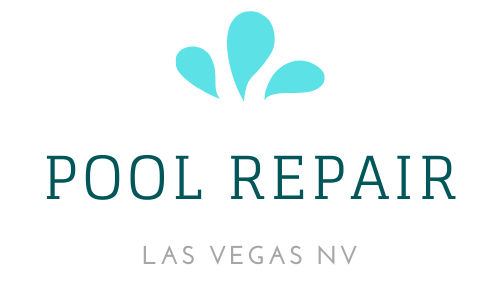A sparkling pool is a refreshing oasis, especially in the scorching Nevada heat. However, that oasis can quickly turn into a nightmare when you discover a pool leak. The constant loss of water not only leads to high water bills but also poses a risk to your property. In this blog, we’ll explore the importance of pool leak detection and repair in Nevada, focusing on professional services rather than DIY solutions. By understanding the signs of a pool leak and knowing when to call in the experts, you can keep your pool in top shape for years to come.
The High Stakes of Pool Leaks in Nevada
Nevada’s climate, characterized by hot, dry summers, makes pool ownership a true luxury. A pool is not only a source of relaxation but also a means of staying cool during the sweltering months. Unfortunately, this climate also poses challenges to pool maintenance, particularly when it comes to keeping the pool watertight.
Pool leaks are a common issue in Nevada due to the combination of extreme temperatures, shifting soil, and the aging of pool infrastructure. What might seem like a minor leak can quickly become a major problem. Here are some reasons why addressing pool leaks promptly is crucial in the Silver State:
- Water Conservation: In a region where water is a precious resource, every drop counts. Ignoring a pool leak can result in thousands of gallons of water being wasted, driving up your water bill and harming the environment.
- Structural Damage: A leaking pool can cause significant damage to the pool structure and the surrounding area. Over time, the erosion of soil and concrete can lead to costly repairs and potential safety hazards.
- Increased Chemical Usage: Maintaining the chemical balance of your pool water becomes more challenging when there’s a leak. You’ll end up spending more on pool chemicals to keep the water clean and safe for swimming.
- Utility Costs: Leaking pools require more frequent refills, which means higher utility costs. Additionally, you may have to run your pool pump longer to compensate for water loss, further increasing your electricity bills.
- Mold and Algae Growth: Pool leaks can create moisture issues around the pool area, promoting mold and algae growth. These can be unsightly, unhealthy, and difficult to eradicate.
Detecting Pool Leaks
Detecting a pool leak can be a challenging task, especially if you’re not familiar with the signs. Here are some common indicators that your pool might be leaking:
- Excessive Water Loss: If you find yourself topping up your pool more frequently than usual, it’s a clear sign that something is amiss.
- Cracks and Damage: Inspect your pool’s structure for visible cracks, tears in the liner, or damage to the surrounding deck.
- Altered Water Chemistry: Frequent fluctuations in water chemistry, despite regular maintenance, can indicate a leak.
- Soggy Ground: Wet spots or overly damp areas in your pool’s vicinity, even when the pool is not in use, could be a sign of a hidden leak.
- Increased Utility Bills: If your water and energy bills have spiked without a clear explanation, a pool leak may be the culprit.
Professional Pool Leak Detection
While some homeowners might be tempted to try DIY methods for pool leak detection, it’s often a more reliable and cost-effective choice to hire a professional pool leak detection and repair service. Here’s why:
- Advanced Technology: Pool leak detection experts use specialized equipment like electronic listening devices, pressure testing, and dye testing to pinpoint leaks accurately. This technology saves time and minimizes the disruption to your pool area.
- Expertise: Professionals have the knowledge and experience to assess the extent of the damage and recommend the most appropriate repair solutions. They can also detect hidden leaks that DIY methods might miss.
- Preventive Measures: In addition to fixing existing leaks, professionals can advise you on preventive measures to protect your pool from future leaks. This includes proper pool maintenance and addressing underlying issues.
- Cost-Efficiency: While hiring professionals may seem like an upfront expense, it can save you money in the long run. They can identify and address problems before they become more extensive and costly to repair.
Pool Leak Repair Options
Once a pool leak is detected, the next step is to repair it promptly. The appropriate repair method depends on the location and severity of the leak. Here are some common pool leak repair options:
- Patching: Small leaks or cracks in the pool’s surface can often be patched with specialized pool patching materials.
- Liner Replacement: If your pool has a vinyl liner and it’s the source of the leak, replacing the liner may be necessary.
- Plumbing Repair: Leaks in the pool’s plumbing system, such as damaged pipes or faulty seals, may require professional plumbing repair.
- Structural Repairs: If the leak has caused structural damage to the pool, such as cracks in the shell or deck, a professional may need to perform extensive repairs.
- Skimmer and Drain Repair: Leaks around the skimmer or drain area are common and may require sealing or replacement.
Conclusion
Maintaining a leak-free pool in Nevada is essential to enjoying the many benefits of pool ownership without the headaches of excessive water bills and property damage. Detecting and repairing pool leaks is not a DIY task. Instead, it’s best to rely on the expertise of professional pool leak detection and repair services.
By addressing pool leaks promptly and investing in professional solutions, you can extend the life of your pool, reduce water waste, and continue to enjoy your personal oasis in the Nevada desert for years to come. Remember, when it comes to pool leaks, prevention and timely repairs are key to keeping your pool in excellent condition.
